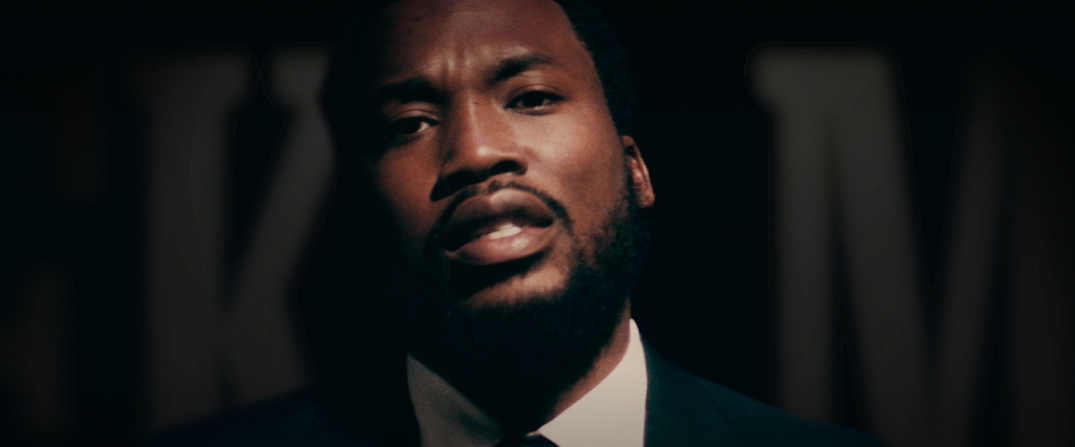In a video released by The New York Times last week, Meek Mill stood in front of a camera. Dark shadows fell on his frowned face in a somber but passionate manner. His exasperation was aimed at this country’s flawed criminal justice system.
“You had a right to remain silent, but that really means you had the right to be silenced, doubted, interrogated, suspected,” he says.
Throughout his career, audiences have taken great note of Meek’s loudness — on the mic and otherwise. He’s shouted about a great deal of things. But he’s only alluded to, rather than thoroughly articulated, his frustrations with the writing and execution of the laws that have mired his and millions of others’ journeys to greener pastures.
Meek was freed on April 24 after doing five months of his two- to four-year sentence; that prison time came after he was stopped in New York a day after he was filmed popping a wheelie on a dirtbike in August 2017. The interaction with the police violated the terms of his probation, which stem from his arrest at 19 years old. That arrest has landed him in and out of prison over the span of the last decade or so, and frankly, none of us seemed to care.
This time around, though, he had the support of high-profile celebrities, including Pennsylvania Gov. Tom Wolf and the state Supreme Court. And Meek’s realization that he is lucky is an important one. He has been evolving, and has been afforded redemption neither the law nor consumers had given him before.
Perhaps that’s why we now hear him louder and clearer than ever. We’re more inclined to listen to Meek about the issues within the criminal justice system because he’s been through them. It wouldn’t have the same potency coming from anyone else. He’s lived it for more than a decade.
Of course, Meek is also a rapper, and music can be a much more effective tool when it comes to messaging. We can see the transformation in his interviews. We can hear it on his recently released fourth album, Championships.
“For 44 dollars a hour, you coward they using ya/ Is it self-hate that made you send me upstate?” he raps on “Trauma,” referencing his shock that the judge who sentenced him — Genece Brinkley, a black woman — would be the one helping to perpetuate a faulty system. (He has appealed to have her removed.)
Several songs later, Meek reunites with Drake — a move a year in the making, according to Meek’s interview with Tidal’s Elliott Wilson. This shows a lot of maturation on Meek’s part, especially considering how much Drake doubled down on dissing Meek through memes at OVO Fest in 2015, two entire diss tracks and everything else.
After all, it was only three years ago when he told Billboard, “I’m scared to be political. You get too powerful and more people try to take you out. My son ain’t trying to hear that his dad got put away because he was fighting for the country.”
Now, it seems, he’s willing to sacrifice the comfort and safety that comes with being quiet. And sacrifice is the difference between a moment and a movement.



